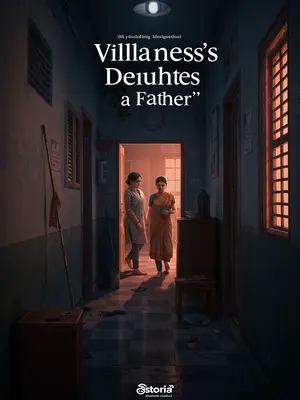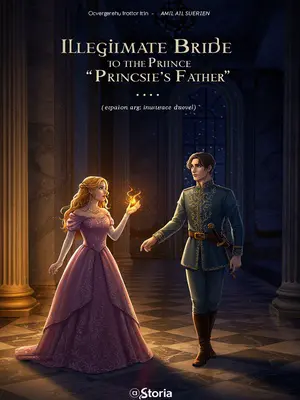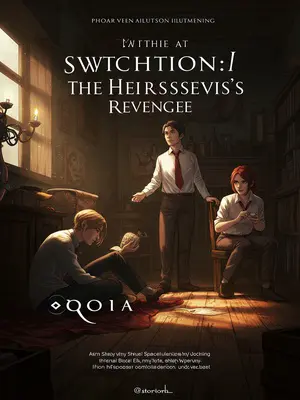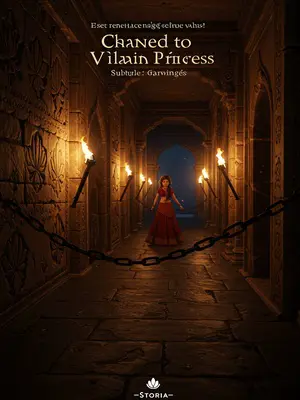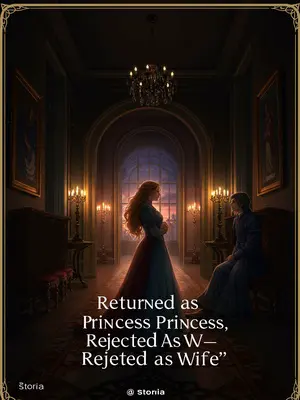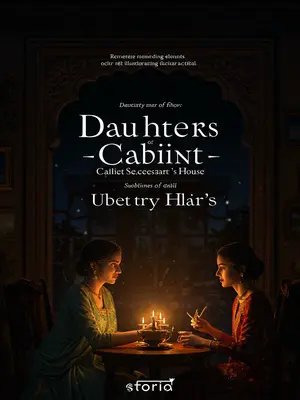Chapter 8: Chai, Scandal, and Opportunity
With Kabir gone, I had fewer people I could truly rely on.
Of course, the family office was at my disposal, but every matter had to be recorded and reported—too restrictive.
There were still too few people I could use freely.
One day, dressed in plain clothes, I went to a chai stall with Arjun and overheard a commotion.
The chaiwala poured cutting chai into small glasses, steam curling up as the crowd jostled for space.
"The Bansal family finally got an IAS son-in-law, but the boy turned his back on them, saying he only agreed to the marriage contract out of desperation and it doesn’t count."
"What an ingrate."
Listening in, I learnt the daughter of the wealthy Bansal family, who did logistics business, had fallen for a poor UPSC aspirant. Her family, at her request, had supported him financially, waiting for him to clear his exams and marry her, so she wouldn’t be ridiculed as a businessman's wife.
Scholars, farmers, artisans, traders—traders have the lowest status, they say.
Traders can’t become officers. No matter how rich the Bansal family was, they couldn’t even take the exams. Now, being played by a mere aspirant, they could only swallow their anger.
Now, the aspirant was publicly declaring he had nothing to do with Miss Bansal, and someone was posting a break-off letter at the stall, attracting a crowd.
"That Miss Bansal is restless too. How dare a trader’s daughter dream of marrying an IAS officer?" a young man in kurta sneered.
This drew angry stares from the crowd.
Some spat, some glared, and some chivalrously cursed him out loud.
Then a male voice laughed. "Well said."
"Trader girls naturally don’t deserve to be noble officers’ wives. I hear Sunita in the family was also a trader’s daughter. She didn’t marry that aspirant—probably because he didn’t want her. In the end, when she meets the officer’s wife, she’ll have to bow and touch her feet."
The chai stall roared with laughter. The aspirant was angry and embarrassed. "You—you’re Bansal from the Bansal family, of course you’d defend your sister!"
I turned slightly and saw a young man gently waving a hand fan, ignoring the outburst. "Aspirant Sharma hasn’t worked for over ten years, taking the exams from age fifteen to twenty-eight, all living off the Bansal family’s food and drink. If the marriage is off, the accounts should be settled."
He wore a crisp kurta and golden chain, his fan painted with gulmohar blossoms—a display of wealth.
He turned to the aspirant. "Over the years, Aspirant Sharma spent 3.6 lakh rupees of my Bansal family’s money. Since you speak for him, why not settle the bill?"
The aspirant blushed; his clothes were plain—clearly, he wasn’t wealthy. "Nonsense! How can I pay—"
I couldn’t help but let out a small chuckle, covering my mouth the way Ma taught me.
"If you can’t pay, why are you speaking for him?" I smiled. "Actually, you should hate him most."
"Aspirant Sharma lived well for over ten years and now leaves easily. This not only warns the girls but also their fathers. Such help in times of need won’t happen again: Aspirant Sharma doesn’t need it, but what about you?"
The aspirant turned pale. Bansal laughed and folded his hands to me. "Madam, you have a sharp tongue."
I smiled and nodded slightly.
The aspirant was indignant. "I can clear the exams, marry a virtuous wife, and take a beautiful partner! The Bansal family are just money-grubbing traders—how can they compare to me!"
I thought for a moment, then asked the young man in black, "Are you Bansal?"
"The family office is holding a special test—open to all, regardless of background. Only talent matters. If you’re interested, give it a try."
His sharp eyes stared at me. "How do you know? Is the heir really so open-minded?"
I smiled and didn’t answer.
I signalled Arjun to leave, and as I left, I gently patted Bansal’s shoulder.
"Bansal, can you get this news to the right people within three days?"
The chaiwala wiped down his stall with a faded gamcha, eavesdropping without shame. The news would reach every galli and mohalla by sundown. Arjun sipped his chai, his brow furrowed. I let the noise of the city wash over me—cycle bells ringing, the heady aroma of fresh samosas, the murmurs of old men debating cricket. Here, in the chaos of daily life, true alliances were forged.

